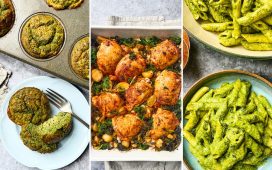These are foods I feel fluent in, even if, when I try to order from the fried banana woman, I have to hold up my fingers to indicate how many I want, because I forget how to say any number larger than three in Malay. These foods are precious to me, in the way that a Thanksgiving turkey is not because, roam where I may, I could not stop being American even if I tried. But to stay a little bit Malaysian, I realize, as I contemplate a future that eventually will take place without my mom, will require an active effort of will, to ensure that what tethers me to that country doesn’t stretch until it snaps.
What I am saying is that casual conversions to veganism are white privilege.
Just kidding! I am not saying that.
I am also not saying that any of the above is a problem, exactly. The solution is to not be dogmatic, to be adults. We are all capable of understanding the difference between meaningful and meaningless meat.
What I am saying is simply that I don’t think I’m alone in feeling this tension. Such feelings transcend race and ethnicity, but I happen to be part of a generation of Asian-Americans whose parents came over (and then, in some cases, went back) after the Immigration and Nationality Act of 1965. There is a whole cohort of people at this moment who are around my age, with parents who are getting older, who are having children of their own and contemplating what sort of relationship they’ll be able to offer these children to the distant countries their families are from, even as they contemplate what sort of future they can offer their children at all. Amid all this, food remains an important link in a connection that can sometimes feel tenuous. When I asked a friend about her New Year’s resolutions, she said one of them was to cook only Vietnamese food for the month of January.
In “The Omnivore’s Dilemma,” published in 2006, before the connection between diet and climate change had become so mainstream, Michael Pollan wrote about his reluctance to become fully vegetarian. To do so, he wrote, would mean losing something along the way that “I’m not prepared to dismiss as trivial”; that what seems like such a simple decision, to stop eating meat, has a way of alienating us from our histories and our traditions and the people around us. It is an unideal irony that the pull of these forces has become stronger for me even as combating climate change becomes ever more urgent.
The throughline to all of this, of course, is modernity. Modernity made our families this way, scattering them around the globe, leaving some of us feeling insecure in our roots. Modernity is why I must fly more than 6,500 miles to see my mom, leaving almost a ton of carbon dioxide behind each time I do. Modernity is why she can get first-class cancer treatment in Malaysia, at a specialist hospital where they brag about their radiotherapy machine. Modernity is why we can buy the roast pig; it is why we feel that we have to eat it, even if perhaps we should not, because not eating it would fundamentally change who we are.
The Times is committed to publishing a diversity of letters to the editor. We’d like to hear what you think about this or any of our articles. Here are some tips. And here’s our email: letters@nytimes.com.
Follow The New York Times Opinion section on Facebook, Twitter (@NYTopinion) and Instagram.






